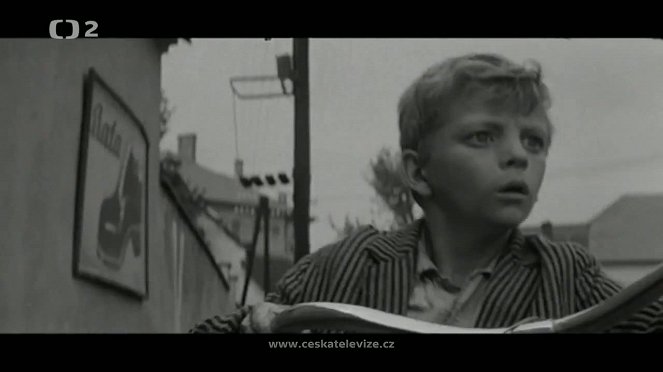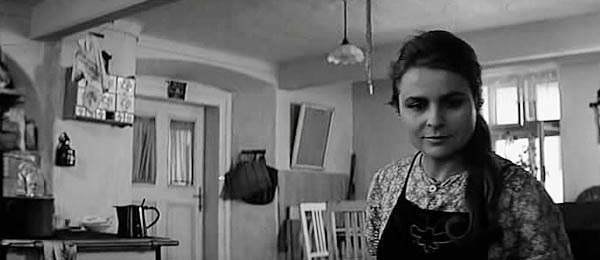Réalisation:
Karel KachyňaPhotographie:
Jaromír ŠofrMusique:
Jan NovákActeurs·trices:
Zdeněk Lstibůrek, Naděžda Gajerová, Vlado Müller, Gustáv Valach, Yuriy Nazarov, Iva Janžurová, Jindra Rathová, Jaroslava Vysloužilová (plus)Résumés(1)
1945, dans un petit village morave. Olin, 12 ans, souffre de sa petite taille, des railleries des enfants et d'un père très violent. Il se réfugie dans ses rêveries permanentes. Après le repli des troupes allemandes, on attend l'arrivée des chars de l'Armée Rouge. Les villageois décident d'envoyer les enfants cacher les chevaux dans la forêt, avant leur réquisition. C'est le début d'aventures aux frontières de la folie et de la mort. (Malavida)
(plus)Vidéo (1)
Critiques (1)
This film is an example of Karel Kachyňa's directorial mastery. The film clearly shows that Kachyňa originally studied camera work and is strongest in working with imagery. The film is a caustic reflection of life in a Moravian village at the end of the war. Kachyňa looks at the rural community of the German Reich's demise and the arrival of new orders through the eyes of a 12-year-old boy who escapes from the joyless reality (he is the target of mockery, isolated from his peers, and has an insensitive despot for a father who considers corporal punishment the most effective educational tool) and runs into a world of dreams and fantasies. The film requires greater perception, as it constantly alternates between different time layers and dreams. The viewer gradually puts together a whole image and constructs a story from the individual fragments. Kachyňa looks at the liberation of the republic with a non-ideological perspective and finds the glorification of liberation and the Soviet army that was common until then foreign to him. On the contrary, the final scapegoating of the local outsider, whom the community has chosen as a sacrificial lamb for their frustration from the occupation's powerlessness and at the same time as an ideal means to divert attention from their own moral decline, is one of the most impressive examples of repulsive Czech mentality and human pettiness. In my opinion, in this film Kachyňa sometimes gets carried away with poetic imagery and other times edits shots in a way that compromises the comprehensibility of the plot, but even with these reservations, it is an exceptionally powerful film, one of the best of its decade. Overall impression: 90%.
()


